Smart Agriculture Technologies
Smart agricultural technologies offer innovative solutions that bring the agricultural sector into the digital age. They aim to optimize agricultural production, minimize resource use, and improve farmers’ decision-making processes by using digital technologies and data analytics. Thanks to advanced technologies such as sensors, drones, satellite imaging, the internet of things (IoT), and artificial intelligence, the status of agricultural lands can be monitored instantly, accurate data can be obtained about plant and soil health, and the most appropriate irrigation, fertilization, and harvest times can be determined in light of this data. Smart agricultural technologies make revolutionary changes in agricultural production, enabling farmers to obtain more products with fewer resources and ensure environmental sustainability. In addition to increasing agricultural productivity, these technologies reduce farmers’ workload and shape the future of agriculture. Taking a step into the agriculture of the future with smart agriculture today will provide great benefits both economically and environmentally.
What is Smart Agriculture?
Smart agriculture is an agricultural practice that aims to increase efficiency, reduce costs and ensure sustainability through the use of digital and technological innovations in agricultural production processes. This technology-based approach allows farmers to monitor and manage many factors such as soil, plants, weather and pests. Smart agriculture aims to create a more efficient and effective production structure by providing digital transformation in the agricultural sector.

What are the Components of Smart Agriculture?
Smart agriculture is an approach that makes agricultural production more efficient and sustainable through the use of technological tools and methods. Its main components are:
- Sensors and IoT Devices: Monitor soil, plant and climate conditions and collect data.
Smart Irrigation Systems: Optimize irrigation timing and amount. - Satellite and Drone Technologies: Perform field monitoring, mapping, planting, spraying and fertilizing operations.
- Data Analytics and Artificial Intelligence: Analyze data to make predictions about disease risks, weather forecasts and crop productivity.
- GPS and Geographic Information Systems (GIS): Used for precision agriculture applications.
Robotics and Automation: Performs automatic planting, harvesting, spraying and fertilizing. - Software and Mobile Applications: Provides farm management and field data collection functions.
- Blockchain Technology: Increases supply chain traceability and food safety.
- Energy Management Systems: Ensures renewable energy use and energy efficiency.
- Smart Storage and Logistics: Monitors and manages product storage conditions.
- Precision Agriculture: Performs correct planting, fertilizing and spraying applications.
- Climate and Weather Models: Provides predictions for planting and harvest timing.
These components aim to transform the agricultural sector by increasing the efficiency of agricultural activities, reducing costs and reducing environmental impacts.
What are the benefits of smart farming?
Smart agriculture is an approach that aims to increase productivity through the integration of technology in the agricultural sector. It offers farmers various advantages by going beyond traditional agricultural methods. These advantages include obtaining higher yields, reducing fertilizer and pesticide costs, increasing product quality and environmentally friendly agricultural practices. Smart agriculture makes it easier to monitor and manage agricultural activities; realistic cost calculations can be made with instant data. In addition, protection and monitoring processes can be managed more effectively during harvest periods. This approach solves problems that are difficult to intervene in classical agriculture and encourages innovative applications in agricultural production. For example, it enables the spread of modern techniques such as soilless agriculture, thus increasing the sustainability and efficiency of agriculture.
Smart agriculture also offers a vision that includes strategic planning and technological innovations for the future of the agricultural sector. In this way, agricultural production processes become more predictable and offer farmers the potential to provide long-term economic gains. As a result, smart agriculture represents a new era in which modern agriculture is evolving, benefiting both farmers and consumers.
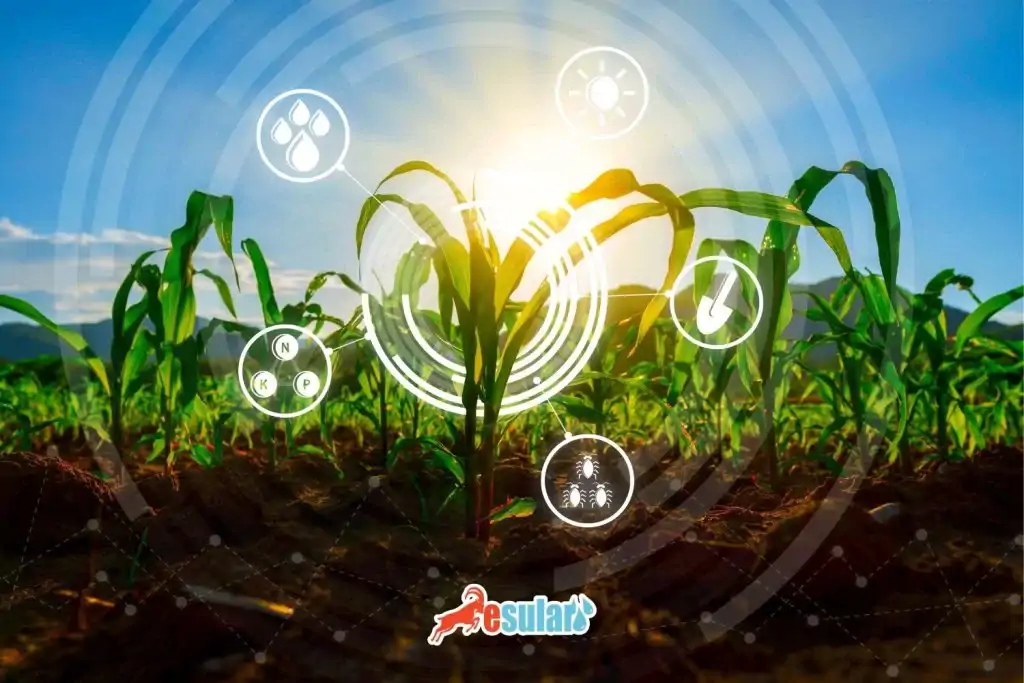
What are Smart Agriculture Applications?
Smart agriculture is an approach that aims to increase productivity through the integration of technology in the agricultural sector. It offers farmers various advantages by going beyond traditional agricultural methods. These advantages include obtaining higher yields, reducing fertilizer and pesticide costs, increasing product quality and environmentally friendly agricultural practices. Smart agriculture makes it easier to monitor and manage agricultural activities; realistic cost calculations can be made with instant data. In addition, protection and monitoring processes can be managed more effectively during harvest periods. This approach solves problems that are difficult to intervene in classical agriculture and encourages innovative applications in agricultural production. For example, it enables the spread of modern techniques such as soilless agriculture, thus increasing the sustainability and efficiency of agriculture.
Smart agriculture also offers a vision that includes strategic planning and technological innovations for the future of the agricultural sector. In this way, agricultural production processes become more predictable and offer farmers the potential to provide long-term economic gains. As a result, smart agriculture represents a new era in which modern agriculture is evolving, benefiting both farmers and consumers.
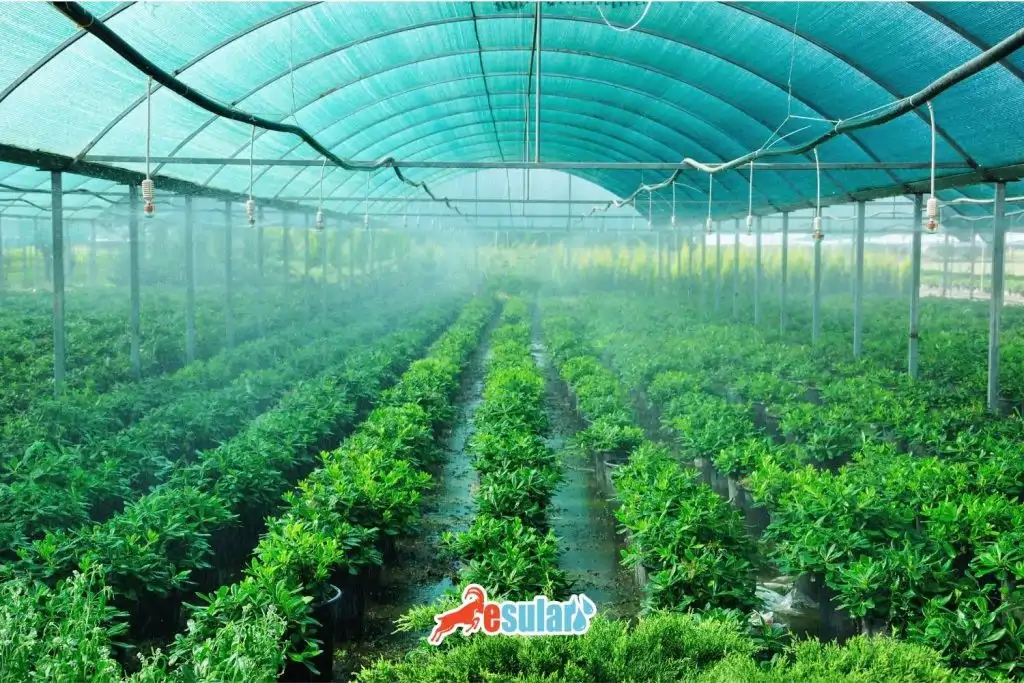
esular Irrigation and Fertilization Automation
As esular, we make farmers’ agricultural processes more efficient and sustainable with the solutions we offer in the field of smart agricultural technologies. With soil moisture sensors, farmers can continuously monitor soil moisture levels and create irrigation programs according to the water needs of the plants. Ambient humidity and temperature sensors help provide the ideal environment for plant development by monitoring environmental conditions. Our system also helps farmers optimize resource use by instantly monitoring operational data such as loss and leakage detection.
CO2 sensors and ultrasonic level sensors support plant growth by monitoring CO2 levels in the farm environment, while continuously measuring the fill levels of storage units such as water tanks and offering farmers the opportunity for timely intervention. Automatic pool filling and window opening/closing systems save energy, reduce farmers’ operating costs and automate farm management.
Through our mobile application, farmers can instantly monitor these sensor data, manage their fields remotely and remotely control processes such as irrigation and fertilization. In this way, our farmers can plan and manage their agricultural activities more effectively, thus increasing their productivity and optimizing product quality and cost savings. As Esular, our vision is to increase farmers’ incomes and encourage sustainable agricultural practices by supporting digital transformation in the agricultural sector with pioneering technologies. By combining the power of technology and agriculture at every step, we aim to enable our farmers to conduct more efficient, smart and environmentally friendly agricultural management.

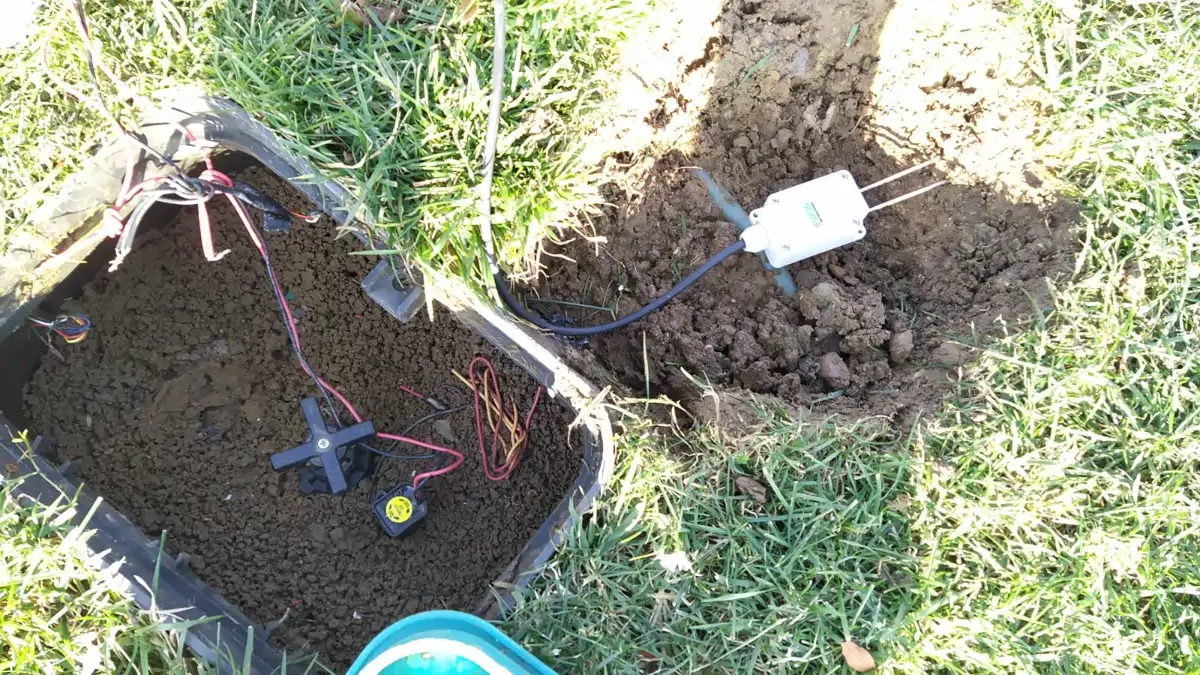
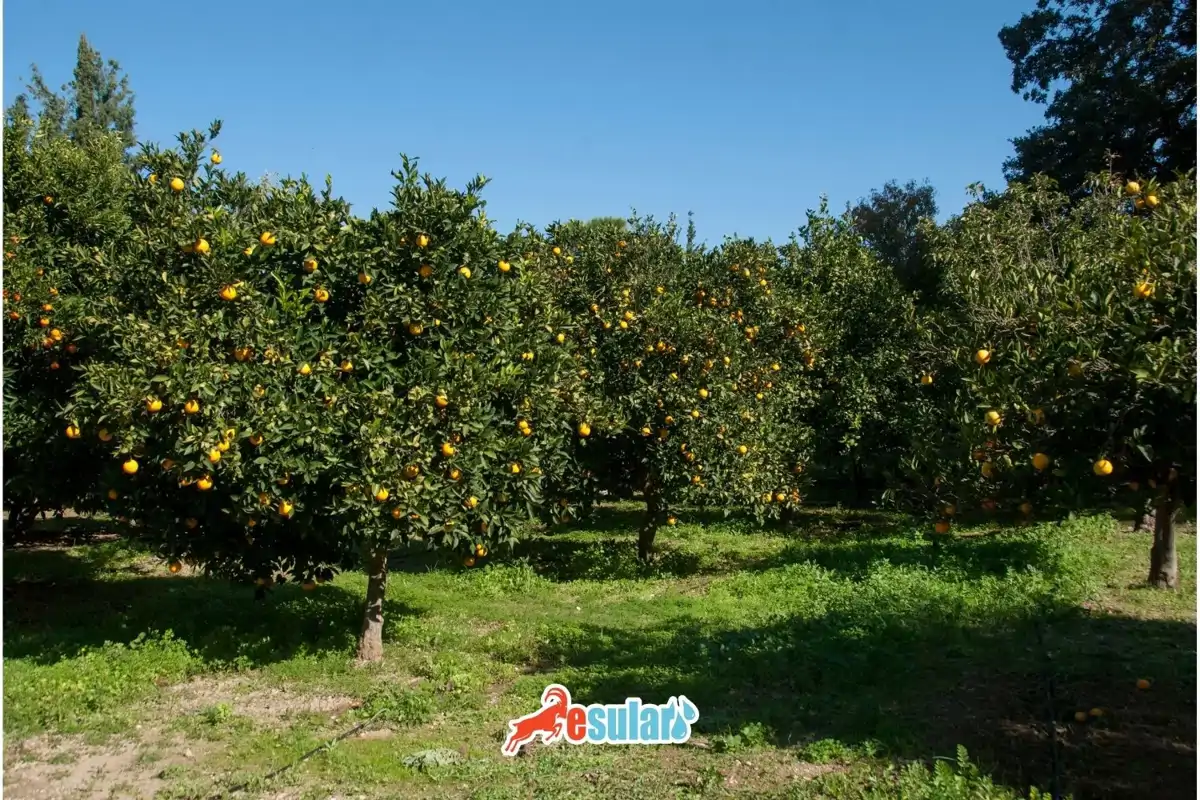
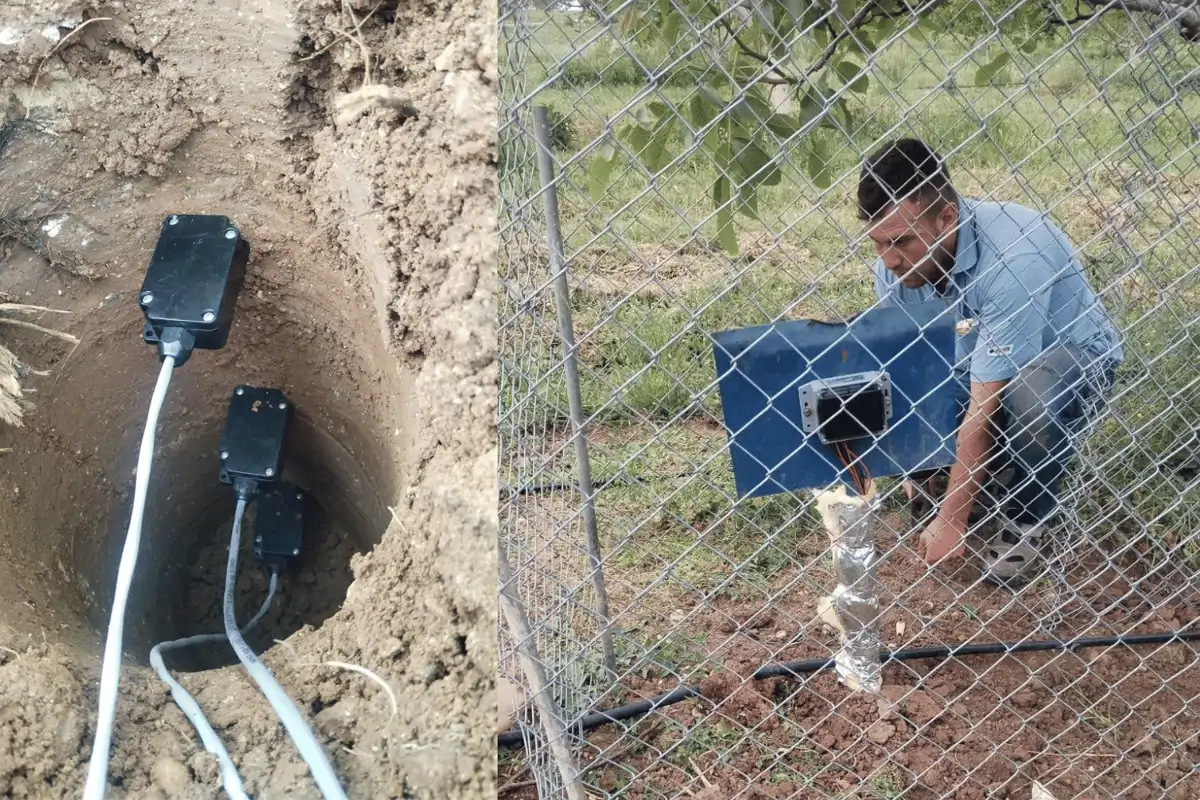
Yorumlar